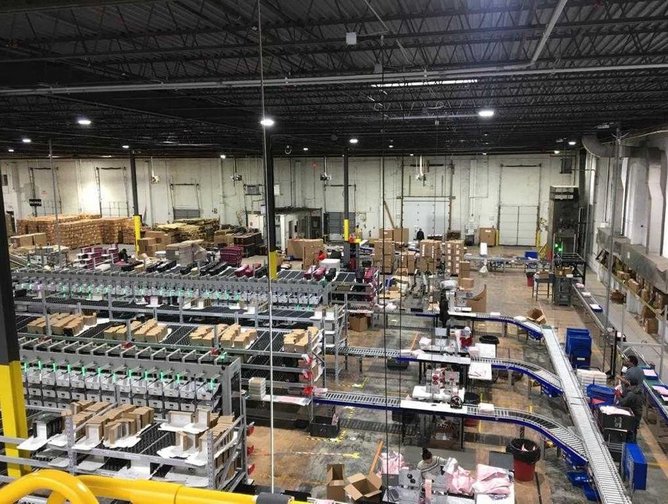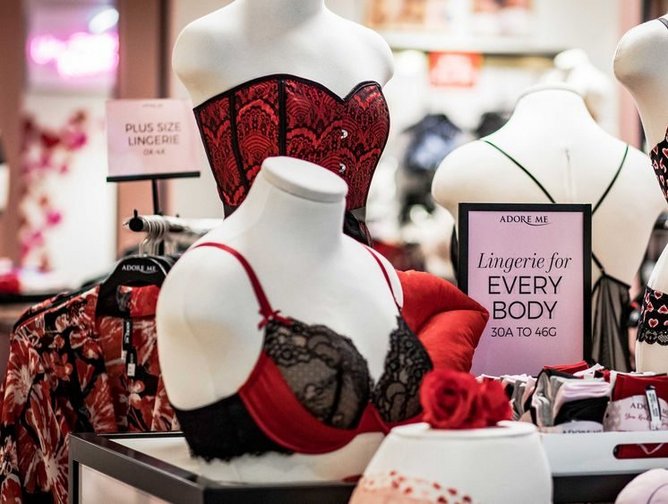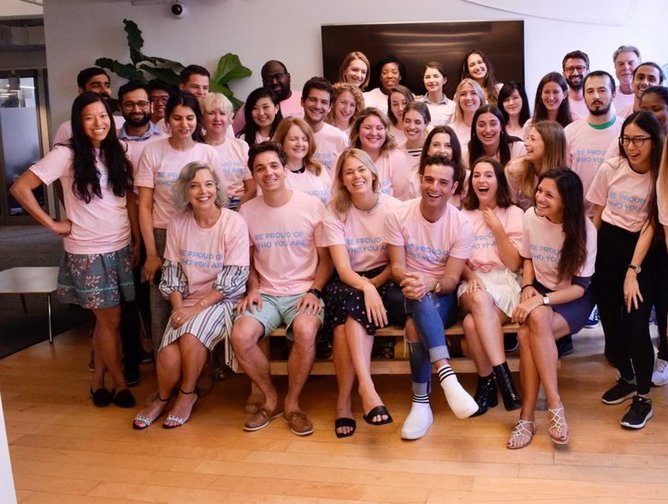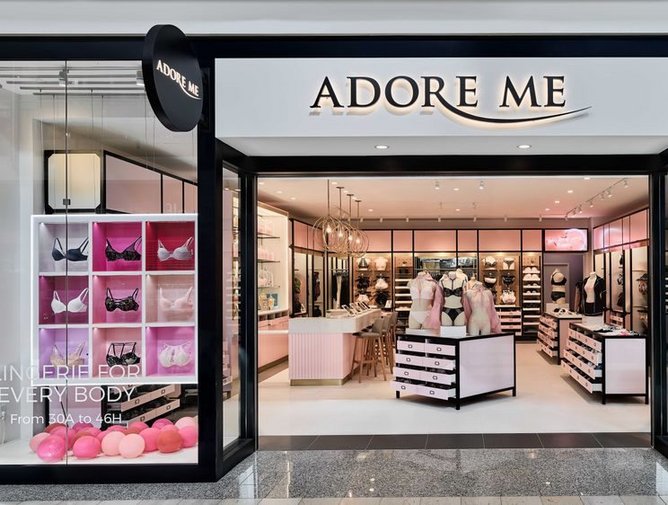AdoreMe: Digital disruption of the fashion supply chain
Adore Me is a disruptive ecommerce startup that is driven to revolutionise and transform the lingerie industry through digital technology. Founded in 2012, Adore Me has grown into a team of over 300 employees across the United States and Europe and is considered one of the fastest-growing companies in New York and one of the fastest-growing retailers in the United States.
Romain Liot is the Chief Operating Officer and co-founder of Adore Me and has been with the organisation since 2013, having previously worked at McKinsey. “Adore Me is engineered for disruptions and we began with the intent to disrupt the lingerie market,” explains Liot. “We initially targeted a branding disruption to start with and originally began online; our tech team now consists of 40% of the total full-time employees.” Liot affirms that, as Adore Me was born digital, the company isn’t undergoing a classic digital transformation from little to no technology to a fully digitalised environment, but is instead leveraging and implementing technology that creates value. “We’re digital-native, so it’s a bit different,” he says. “We launched our warehouse three years ago and we’ve combined two technologies together: Autostore and Suresort. This gives us an edge because we can list the products that are ready to ship quickly on the website.”
Considered an integral part of Adore Me’s second phase into expanding internationally, the 126,286 sq.ft warehouse is home to a highly-automated order management process, which brings state-of-the-art technology to life. As a result, Adore Me became one of the first companies to adopt Autostore and SureSort technology. Following the launch of the warehouse, Adore Me can now fulfill over 20,000 orders every day, which represents four times the volume of a conventional distribution centre. The cutting-edge warehouse utilises robotics technology and has been launched in a bid to allow Adore Me to streamline operations and accommodate the fast-paced growth of the organisation. “Imagine a giant cube with 73 robots crisscrossing and bringing products to an operator. We’ve married two technologies together to essentially sort orders and ensure the customer gets the perfect order,” affirms Nikhil Shetty, Supply Chain Manager. “It’s powered with strong algorithms where we have intelligently stored products and the finished product is a finalised sequence which allows the customer to have the right order that they want.” He adds that what sets Adore Me apart is its ability to be lean and agile in the market. “We have the right leadership that empowers all of us to take on responsibilities,” explains Shetty. “We are quick and agile, and embrace technology that enables us to deploy projects at scale. I feel this differentiates us from our competitors and will help us grow over the next few years.”
“From a supplier management perspective, having tools that we've developed internally and allow our suppliers to have access to has enabled us to speed up certain pieces within our development process,” explains Christina Chang, Product-to-Market Manager. “This has allowed us to have faster feedback from our manufacturers and has helped reduce timings and has allowed us to make decisions in a very effective way. Having those tools in place to allow us to manage our manufacturing processes and manage the shipment process is critical.”
Liot believes that the most important reason to introduce the warehouse was to be more autonomous and independent, while saving money. “We’ve made the decision to be more autonomous,” he explains. “We felt it was possible to disrupt the fashion industry and be more efficient with a better cost. Our cost of shipment is now 70-80% lower than the benchmark in the industry. We empower them and make them operate at a much higher efficiency.”
The COVID-19 pandemic has impacted organisations and industries across the world. As a result, Chang explains that Adore Me was forced to adjust its mindset and processes in terms of its procurement strategy. “Our business model is not necessarily fast fashion because we often see a 14-month time gap from product conception until the product is delivered at the warehouse,” explains Chang. “We spend time on sourcing the materials as it’s essential that we have high quality products. We’ve experienced delays in shipping from Asia because of COVID-19 and we’ve had to work quickly to procure more inventory to meet demand. Being nimble and being able to leverage our partnerships with our manufacturers has been vital.” Shetty adds that Adore Me put a considerable amount of effort in its logistics to better meet the challenge of COVID-19. “We tested a new set of robotic arms in order to keep our operational rhythm up and running as usual and allow our orders to get to our customers,” he says. “The logistics network was hit fairly bad because of a surge in sales and limited staff due to safety protocols which meant a delay in shipments. This seemed like a very good opportunity or a time for us to test out this new decentralised carrier system in the Northeast and allow next day delivery to our customers. I believe being as agile and as nimble as we were during that tough time was one of our key strengths during the pandemic.”
Adore Me recognises the value of establishing key, strategic partnerships with companies to create mutually beneficial collaborations. Chang stresses how essential business relationships are in order to be successful in the industry. “We rely heavily on our manufacturing partners in Asia and across the world, because without them, we really wouldn’t be able to deliver high quality products to our customers,” she explains. “I believe the key for us has been cultivating partnerships with our manufacturers that are really meant for the long-term and can last. We want to grow with our partners and join forces on innovation, sustainability and establish that mutual trust to increase efficiency across the supply chain.” Chang affirms that the strength of Adore Me’s partnerships has really shone through during the COVID-19 pandemic. “Having that mutual support during this really difficult and challenging time has allowed us to go beyond the normal timelines and procure at a greater pace and without that backing, it would have been a lot harder,” she explains. “When we’re seeking to form a partnership, we’re searching for partners that are aligned to our strategy and can mutually grow with us.” Liot points to its partnership with Asendia as a particularly important relationship. “We’ve worked with Asendia for several years and we challenge them every year,” explains Liot. “Asendia have shared values with us and acknowledge when things aren’t perfect and are always willing to work with us to make things better. We have a very open and understanding partnership and it has generated a lot of value. Asendia also places considerable importance on sustainability, which is incredibly important to us too.”
With sustainability in mind, Shetty affirms that Adore Me is committed to its sustainability goals and has undertaken several initiatives to achieve a more environmentally friendly packaging output. “We now have an ecomailer which is made up of recycled content and can be recycled. We’re using smarter materials to leave a smaller carbon footprint, while also reducing the logistical footprint too.” Looking to the future, Liot believes the fashion industry will have to change and believes it will transform in three directions. “The industry will become more digital across all platforms. There will be a digitalisation in the supply chain and in operations which will be essential and will leave organisations with no choice,” he says. “Secondly, sustainability will become more influential and prominent in everyday operations. As climate change continues to have an effect and impact, it will be imperative to reduce the carbon footprint. Lastly, there will be a change in globalisation. I believe there needs to be a much shorter cycle and I expect there will be a geographical shift in the coming years.”





